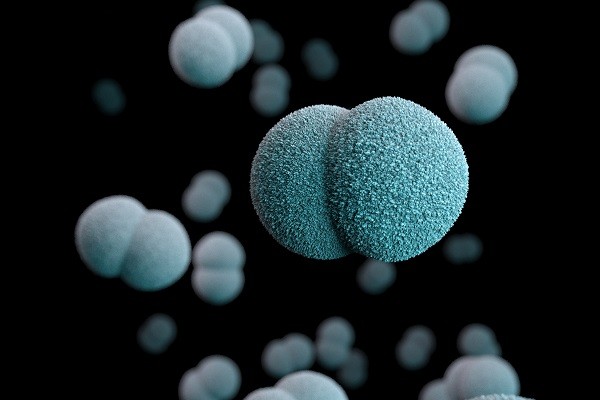How You Can Improve Your Gut Health?

What is gut health?
Here's something about yourself that sounds like the start of a science fiction film: you are only 76% human.
You're made up of varieties of bacteria in your mouth, gastrointestinal tract, and on your skin. And the combination of your and this "other" bacteria results in 100-times as many genes as the human genome (a "genome" is an organism's complete set of DNA).
And this is called the "extended genome", arriving due to the co-evolution between us and the aforementioned bacteria. It has also been identified as critical for human health.
Moreover, the "extended genome" is often referred to as gut "microbiome", a word you've likely read or heard many times before. And the precise makeup of your microbiome is affected by various factors like your diet, geographic location, and genetics.
And because this bacteria is in your mouth, gastrointestinal tract, etc, it means that when we're referring to your "gut", it's not just your stomach, but your whole digestive system. We're talking about your mouth, teeth, oesophagus, stomach, and small and large intestines. So, there's a lot that can go wrong here from a health point of view.
And when your gut health isn't strong, your risk of disease and disorder rises. It also means it's harder for you to lose weight.
Why is good gut bacteria special?
The reason we're hearing more about gut health today is that scientists, until recently, thought that gut bacteria was just to aid digestion. But how bacteria affects our health and well-being is relatively fresh.
But it turns out gut bacteria breaks down poisonous compounds that would have otherwise found their way into your bloodstream. They also enhance our immune systems and might bolster our health by creating goodies such as short-chain fatty acids; molecules that can help prevent inflammatory diseases like cardiovascular disease and diabetes.
And normally, our bodies excrete what they don't need from food. But occasionally, some unwantedness can creep past your colon's defences. But short-chain fatty acids can also positively affect your gut-barrier function, and not allow these unwanted molecules to get into your blood.
Why gut health is so important
Optimal health is achieved by having a healthy amount of gut bacteria, as it helps fight off the bad bacteria. There's constantly a war going on in your gut, whereby the bad bacteria are trying to outnumber the good. Bad bacteria takes over following a poor diet, disease, or antibiotics. Moreover, you might have heard the term "dysbiosis" -- this is an imbalance between the good and bad bacteria in your gastrointestinal tract.

And it's dysbiosis that can lead to inflammatory bowel syndrome (IBS) and disease (IBD). But here's a very important finding in the age of mental health:
Your gut health influences your mood and brain function.
How gut health affects mental health
Not that good gut health wasn't critical enough already, but this is a huge finding. Moreover, a communication system referred to as the "gut-brain axis" plays a key role in the makeup of neurotransmitters like serotonin, which governs happiness and wellbeing. This is why gut health has such a profound impact on mental health; dysbiosis has been found to cause depression, anxiety, and stress.
Ok, so what does ideal gut health look like? Well, scientists still aren't exactly sure.
But the good news is scientists DO know what will improve your gut health: and that's two words you've probably seen everywhere in the last few years:
- Prebiotics: a digestion resistance fibre that acts as fuel for the good bacteria in your gut.
- Probiotics: have live bacteria that strengthen the quality of the good bacteria already present within your intestines and add more good types that aren't there. You can find probiotics in yoghurt, fermented foods, and some supplements.
What are prebiotics and why are they important?
Prebiotics are obviously critical for keeping up a healthy amount of gut bacteria. Low prebiotic intake = low gut health.
So where do we get prebiotics from? Well, fruit and vegetables strike again! Also, research suggests anything from 4-20 grams of prebiotics a day is beneficial.
To put this into context, a medium-sized banana has about 6 grams of prebiotics, so getting enough shouldn't be an issue.
But get enough fruits and vegetables daily, and you'll be getting enough prebiotics for optimal gut health. With current fibre recommendations being 50 grams a day, you'll be covering yourself well and truly.
Also, keep exercising! Research shows that those who exercise can favourably impact their gut microbiota.
The bottom line is that gut health is still yet to be fully explored, but we must eat enough fruit and vegetables to allow for a positive balance of good gut bacteria. This is not only important for fighting off nasty diseases but is critical for our mental health, too. By aiming to consume the recommended daily fibre intake of 50 grams, we can rest assured we'll get the recommended amount of prebiotics a day: 4-20 grams. This is critical in a time where gut health is becoming more important to our well-being every day.

Dayne Hudson
Like many, Dayne was once desperate to lose weight and get into shape. But everyone he asked, everything he read, lead to the same place... nowhere.
His journey started there - researching science journals and completing a Sports Nutrition Specialist qualification so he could make weight loss easier.
References:
- Bailey MT, Dowd SE, Galley JD, Hufnagle AR, Allen RG, Lyte M. Exposure to a social stressor alters the structure of the intestinal microbiota: implications for stressor-induced immunomodulation. Brain Behav Immun. 2011 Mar;25(3):397-407. doi: 10.1016/j.bbi.2010.10.023. Epub 2010 Oct 30. PMID: 21040780; PMCID: PMC3039072.
- Belizário JE, Faintuch J. Microbiome and Gut Dysbiosis. Exp Suppl. 2018;109:459-476. doi: 10.1007/978-3-319-74932-7_13. PMID: 30535609.
- Bercik P, Verdu EF, Foster JA, Macri J, Potter M, Huang X, Malinowski P, Jackson W, Blennerhassett P, Neufeld KA, Lu J, Khan WI, Corthesy-Theulaz I, Cherbut C, Bergonzelli GE, Collins SM. Chronic gastrointestinal inflammation induces anxiety-like behavior and alters central nervous system biochemistry in mice. Gastroenterology. 2010 Dec;139(6):2102-2112.e1. doi: 10.1053/j.gastro.2010.06.063. Epub 2010 Jun 27. PMID: 20600016.
- Camilleri M, Madsen K, Spiller R, Greenwood-Van Meerveld B, Verne GN. Intestinal barrier function in health and gastrointestinal disease. Neurogastroenterol Motil. 2012 Jun;24(6):503-12. doi: 10.1111/j.1365-2982.2012.01921.x. Erratum in: Neurogastroenterol Motil. 2012 Oct;24(10):976. Van Meerveld, B G [corrected to Greenwood-Van Meerveld, B]. PMID: 22583600; PMCID: PMC5595063. Carding S, Verbeke K, Vipond DT, Corfe BM, Owen LJ. Dysbiosis of the gut microbiota in disease. Microb Ecol Health Dis. 2015;26:26191. Published 2015 Feb 2. doi:10.3402/mehd.v26.26191
- Carding S, Verbeke K, Vipond DT, Corfe BM, Owen LJ. Dysbiosis of the gut microbiota in disease. Microb Ecol Health Dis. 2015;26:26191. Published 2015 Feb 2. doi:10.3402/mehd.v26.26191
- Cerdá B, Pérez M, Pérez-Santiago JD, Tornero-Aguilera JF, González-Soltero R, Larrosa M. Gut Microbiota Modification: Another Piece in the Puzzle of the Benefits of Physical Exercise in Health?. Front Physiol. 2016;7:51. Published 2016 Feb 18. doi:10.3389/fphys.2016.0005
- Conlon MA, Bird AR. The impact of diet and lifestyle on gut microbiota and human health. Nutrients. 2014;7(1):17-44. Published 2014 Dec 24. doi:10.3390/nu7010017
- den Besten G, van Eunen K, Groen AK, Venema K, Reijngoud DJ, Bakker BM. The role of short-chain fatty acids in the interplay between diet, gut microbiota, and host energy metabolism. J Lipid Res. 2013;54(9):2325-2340. doi:10.1194/jlr.R036012
- Grice EA, Segre JA. The human microbiome: our second genome. Annu Rev Genomics Hum Genet. 2012;13:151-170. doi:10.1146/annurev-genom-090711-163814
- Hills RD Jr, Pontefract BA, Mishcon HR, Black CA, Sutton SC, Theberge CR. Gut Microbiome: Profound Implications for Diet and Disease. Nutrients. 2019 Jul 16;11(7):1613. doi: 10.3390/nu11071613. PMID: 31315227; PMCID: PMC6682904.
- Hyland NP, Cryan JF. Microbe-host interactions: Influence of the gut microbiota on the enteric nervous system. Dev Biol. 2016 Sep 15;417(2):182-7. doi: 10.1016/j.ydbio.2016.06.027. Epub 2016 Jun 22. PMID: 27343895.
- Jiang H, Ling Z, Zhang Y, Mao H, Ma Z, Yin Y, Wang W, Tang W, Tan Z, Shi J, Li L, Ruan B. Altered fecal microbiota composition in patients with major depressive disorder. Brain Behav Immun. 2015 Aug;48:186-94. doi: 10.1016/j.bbi.2015.03.016. Epub 2015 Apr 13. PMID: 25882912.
- Makałowski W. The human genome structure and organization. Acta Biochim Pol. 2001;48(3):587-98. PMID: 11833767.
- O'Keefe SJD. The Need to Reassess Dietary Fiber Requirements in Healthy and Critically Ill Patients. Gastroenterol Clin North Am. 2018;47(1):219-229. doi:10.1016/j.gtc.2017.10.005
- Prodan A, Levin E, Nieuwdorp M. Does disease start in the mouth, the gut or both?. Elife. 2019;8:e45931. Published 2019 Mar 19. doi:10.7554/eLife.45931
- Qin J, Li R, Raes J, et al. A human gut microbial gene catalogue established by metagenomic sequencing. Nature. 2010;464(7285):59-65. doi:10.1038/nature08821
- Quigley EM. Gut bacteria in health and disease. Gastroenterol Hepatol (N Y). 2013;9(9):560-569.
- Roberfroid M. Prebiotics: the concept revisited. J Nutr. 2007 Mar;137(3 Suppl 2):830S-7S. doi: 10.1093/jn/137.3.830S. PMID: 17311983.
- Seganfredo FB, Blume CA, Moehlecke M, Giongo A, Casagrande DS, Spolidoro JVN, Padoin AV, Schaan BD, Mottin CC. Weight-loss interventions and gut microbiota changes in overweight and obese patients: a systematic review. Obes Rev. 2017 Aug;18(8):832-851. doi: 10.1111/obr.12541. Epub 2017 May 19. PMID: 28524627.
- Sheridan PO, Bindels LB, Saulnier DM, et al. Can prebiotics and probiotics improve therapeutic outcomes for undernourished individuals?. Gut Microbes. 2014;5(1):74-82. doi:10.4161/gmic.27252
- Shreiner AB, Kao JY, Young VB. The gut microbiome in health and in disease. Curr Opin Gastroenterol. 2015;31(1):69-75. doi:10.1097/MOG.0000000000000139
- Singh VP, Sharma J, Babu S, Rizwanulla, Singla A. Role of probiotics in health and disease: a review. J Pak Med Assoc. 2013 Feb;63(2):253-7. PMID: 23894906.
- Thursby E, Juge N. Introduction to the human gut microbiota. Biochem J. 2017;474(11):1823-1836. Published 2017 May 16. doi:10.1042/BCJ20160510
- Wikoff WR, Anfora AT, Liu J, Schultz PG, Lesley SA, Peters EC, Siuzdak G. Metabolomics analysis reveals large effects of gut microflora on mammalian blood metabolites. Proc Natl Acad Sci U S A. 2009 Mar 10;106(10):3698-703. doi: 10.1073/pnas.0812874106. Epub 2009 Feb 20. PMID: 19234110; PMCID: PMC2656143.
- Wu HJ, Wu E. The role of gut microbiota in immune homeostasis and autoimmunity. Gut Microbes. 2012;3(1):4-14. doi:10.4161/gmic.19320
Related Blogs

Does Apple Cider Vinegar Help Me Lose Fat?
Posted by Ebony Abblitt
Estimated reading time: 5 minutes

Probiotics and How They Promote Gut Health
Posted by Mason Brezinscak
Estimated reading time: 8 minutes

The Benefits of a Plant-Based Diet for your Gut
Posted by Bulk Nutrients
Estimated reading time: 5 minutes




























